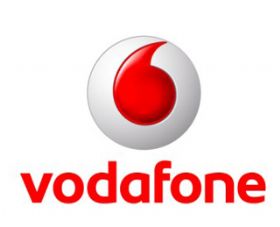Vodafone CEO Anne O’Leary has announced that the company will make 4G available in major population centres by autumn.
Kilkenny will see the first available service, but Dublin, Waterford, Cork, Limerick and Galway will quickly follow.
The service was dependent on the spectrum auctions which took place last year, in which Vodafone became one of four licensees. The company made major acquisitions in the 800, 900 and 1800Mhz ranges. However, the lower 800 and 900Mhz ranges are the most efficient for the higher bandwidth services.
But spectrum and infrastructure are only part of the story said O’Leary. Handsets with 4G capabilities are only now coming onto the market, and it will take some time, said O’Leary, before they become ubiquitous.
n the meantime, O’Leary said that a €500 million investment in network infrastructure over five years will also focus on bringing 3G services to areas where previously only 2G was available. Such areas effectively had no data capabilities, and O’Leary said that Vodafone was keen to upgrade as many such areas as possible. As part of this initiative, Vodafone switched on three sites on Donegal for the assembled media. Immediately, the monitoring systems registered usage of the new services as handsets detected the new capabilities of their nearest antennae and switched to the most efficient routing.
Other improvements to the networks are high definition (HD) voice services. These services can be enabled on existing 3G service area infrastructure and require handsets that are capable of delivering HD voice. In a demonstration, the audio quality difference was instantly noticeable, akin to the difference between radio broadcast and Blu-ray audio. HD voice will be available to all users free of charge who have handsets capable of the higher quality output and are in a 3G coverage area. These handsets include the likes of the Samsung Galaxy SIII and IV, Note II, iPhone 5, HTC One and Google Nexus 4 among others.
The company also demonstrated its cloud PBX offerings for large and small businesses. One Net Express is aimed at telephony users up to 15. The zero configuration phones are battery powered, portable and require no set up or client side infrastructure. The system allows users with no telephony training to customise the system via web interface to set up hunting groups, answer options and forwarding capabilities between fixed or mobile numbers.
Cloud PBX is aimed at the 20 to unlimited user space and again allows users to self-serve via a web interface. With the actual PBX functionality hosted in the cloud, it removes the burden of management and maintenance from the users, and importantly protects against the growing menace of PBX fraud, which Comreg warns, has been a growing problem in Ireland. These advantages, combined with an operational expenditure charging model means that a hosted or cloud service PBX is now the preferred option for businesses of all sizes.
Vodafone Ireland has also been investing in its enterprise business division, with some €25 million spent over the last two years. Steven MacNicholas, head of Enterprise Customer Solutions, said that the company is expecting these investments to bear fruit with a 30% rise in enterprise business forecast for the current year.
TechCentral Reporters








Subscribers 0
Fans 0
Followers 0
Followers